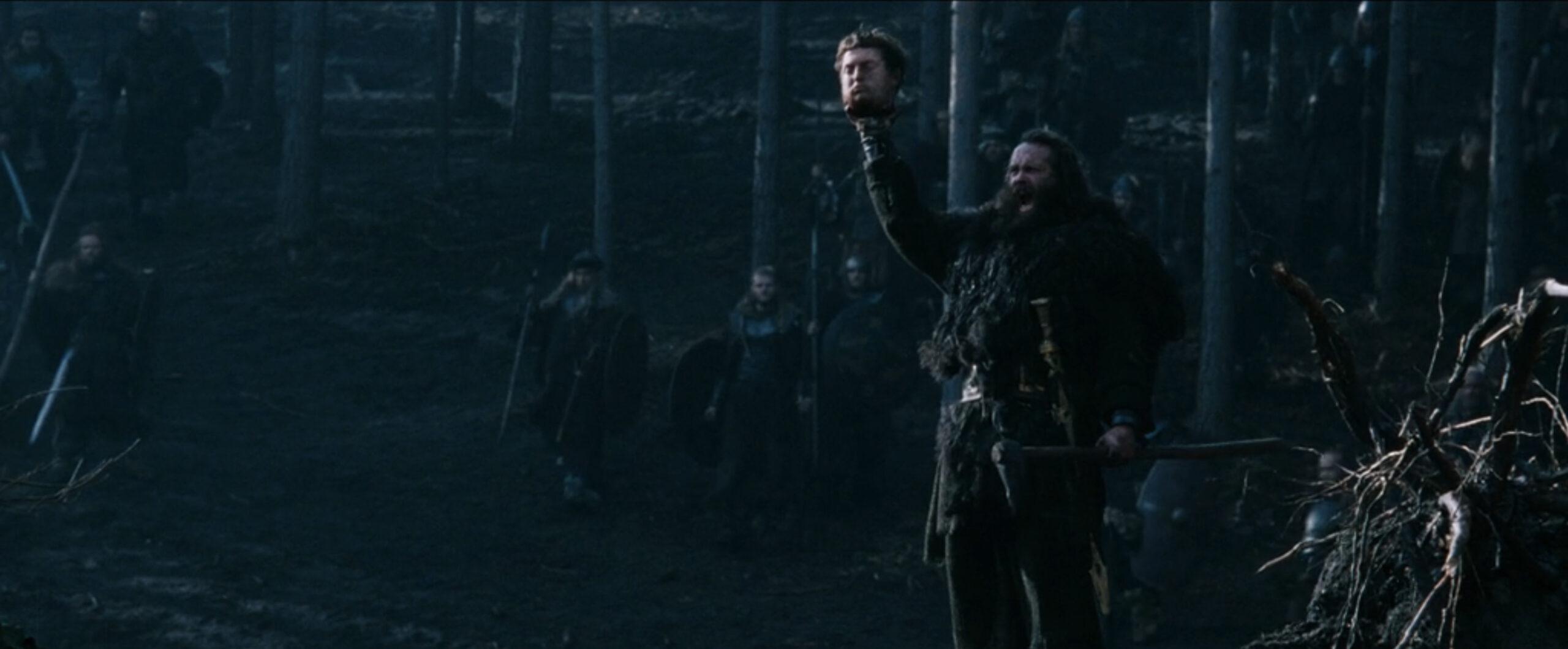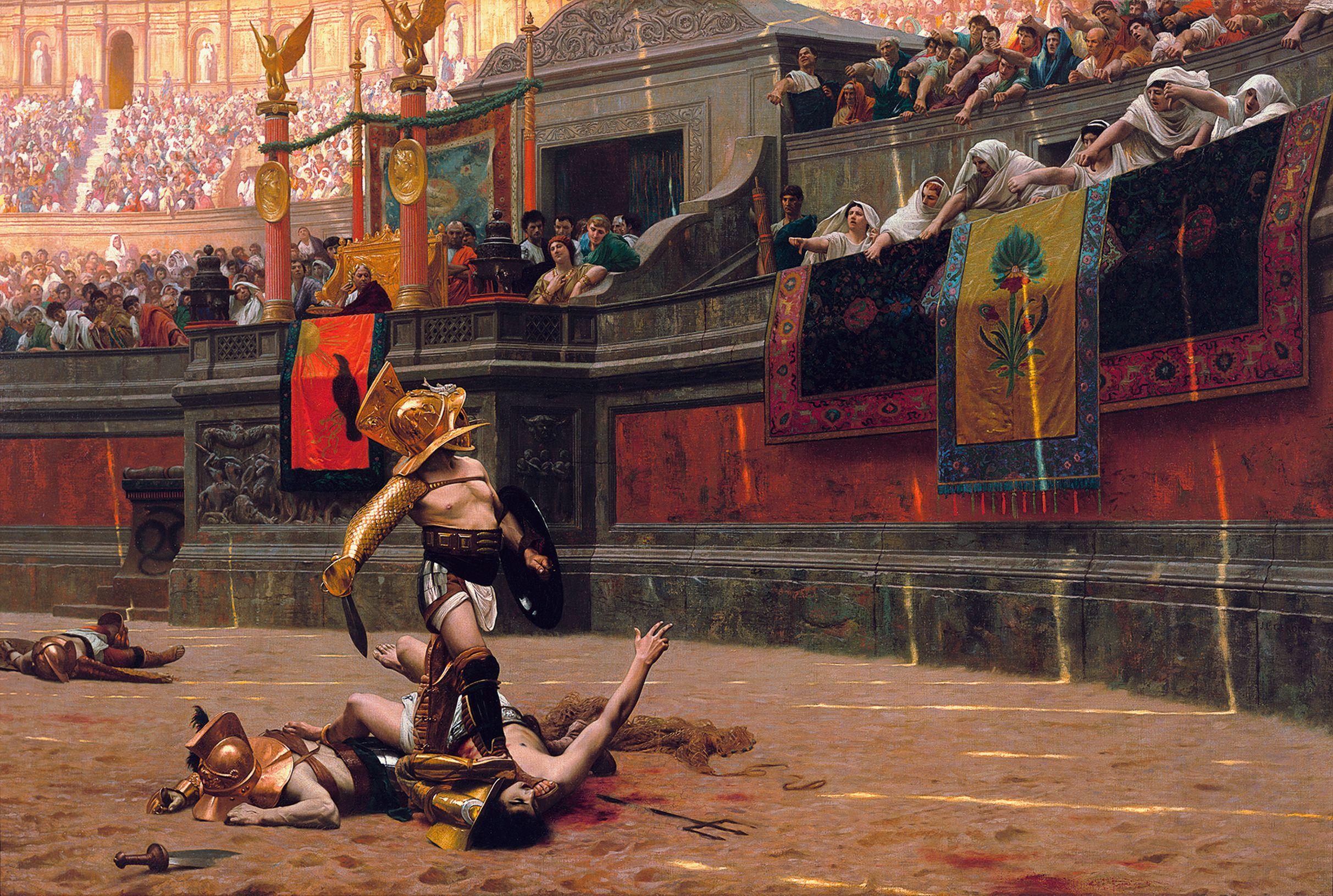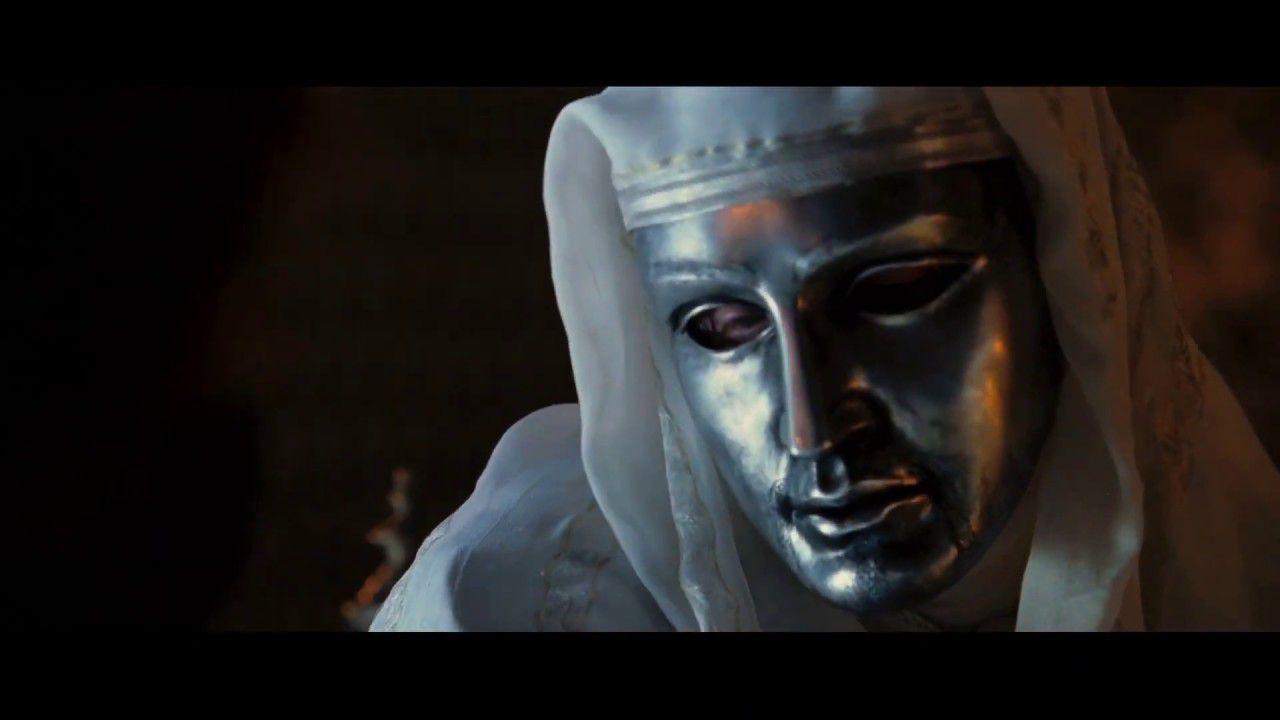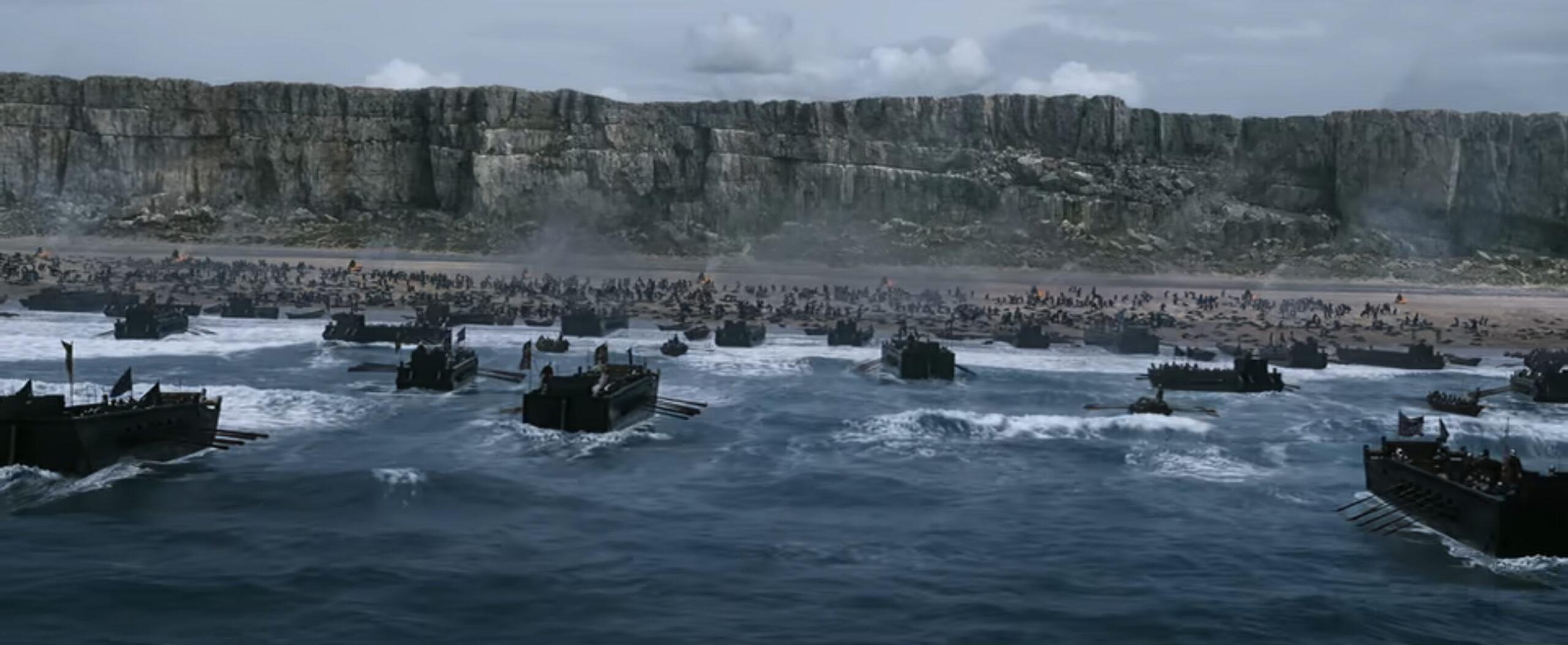Just a year after the release of Napoleon, Ridley Scott is back with another historical epic, Gladiator II, the sequel to arguably his magnum opus. The original Gladiator had a lot of things going for it—compelling performances from Russell Crowe and Joaquin Phoenix, action-packed combat, a rousing score from Hans Zimmer and Lisa Gerrard—but enough time has passed that we can admit historical accuracy was not one of them. The wild fudging of facts didn’t really matter at the time—certainly not in the eyes of the Academy, which awarded Gladiator Best Picture in 2001. Who cares if everyone refers to Maximus as “Spaniard” despite the term not existing until the 15th century? Did you not see his “I will have my vengeance” speech?!
The thing is, this isn’t an anomaly. For a guy who has dedicated much of his filmography to period pieces and biopics, Scott’s interpretations of past events have been routinely dismissed by historians. Napoleon was evidently the culmination of that discontent. From the moment the film’s first trailer showed French troops firing cannonballs at the Egyptian pyramids, academics everywhere were in an uproar. French scholars, of course, were especially unhappy. “This film is like spitting in the face of French people because it feels like Ridley Scott ridiculed both Napoleon and the history of France,” a professor told Variety. And what did Scott say in response to all the criticism?
“When I have issues with historians, I ask: ‘Excuse me, mate, were you there? No? Well, shut the fuck up then,’” he proclaimed, adding in another interview: “The French don’t even like themselves.”
Haha, well, OK then, Ridley. And look, it’s not like we at The Ringer think that “based on a true story” films are documentaries. But Gladiator II, with its sharks in the Colosseum and all, did get us thinking: Just how often has Scott tried to bend history to fit the dimensions of his narrative? Just how egregious were those changes, on a scale of minor anachronisms to, for example, portraying Christopher Columbus as a benevolent missionary working in harmony with Indigenous Americans? It’s impossible to document every instance—seriously, there are far too many—and, candidly, I don’t have a PhD in history. Nevertheless, a host of moments throughout Scott’s catalog stick out to anyone with a basic understanding of world events. So, join us on a chronological journey through time as we recount some of the silliest and outright preposterous retellings of the historical record. This is history, according to Ridley Scott.
The Exodus
As told by: Exodus: Gods and Kings (2014)
We’re starting off in perhaps the most controversial manner: with a Biblical narrative that is widely accepted to be an origin myth. However, some scholars do believe the Book of Exodus has a historical basis, and thousands of years after the writing of the Bible, it’s fair to say the Bible is, in a way, a historical document in and of itself. Besides, there’s at least one thing about this story that we can almost incontrovertibly say is wrong. That’s right, you know what time it is:
Everyone in the Middle East was white, unless they weren’t a major figure in the story. This inaccuracy is so standard, so expected, it’s almost not worth mentioning—until you remember the massive controversy it stirred during Exodus’ release. I’m not here to litigate the ethnicity of any one person—please don’t Netflix Queen Cleopatra me—but the likelihood that almost all the prominent characters in this movie were fair-skinned is very low, to say the least. This Ridleyism falls under the bucket of “historical accuracy” because, of course, Egypt is a real place, the Israelites were a real group of people, and Ramesses II (Joel Edgerton with piercing blue eyes), Seti I (John Turturro), and Tuya (Sigourney Weaver) all actually existed. “No doubt it would have been a melting pot between Europe and the Middle East and North Africa,” Christian Bale, who played Moses, admitted following the film’s premiere. Scott, for his part, said, “I can’t mount a film of this budget and say that my lead actor is Mohammad so-and-so from such-and-such. I’m just not going to get it financed. So the question doesn’t even come up.” Well damn, all right then. Let’s move on to some more lighthearted stuff.
God did not appear as a burning bush, but as, uh, an 11-year-old bully. Here is where we set aside the historicity of the Bible in favor of biblical history—a key distinction. Everyone has seen The Prince of Egypt. Everyone knows God reveals himself to Moses in the form of a talking burning bush and instructs Moses to lead the Israelites out of Egypt. Sure, there is a burning bush, but Ridley Scott does not care what The Prince of Egypt, let alone the Bible, says—he’s going to turn the Lord into some vindictive preteen who seems like he’d shove you into a middle-school locker. Seriously, this kid is rude, and worst of all, he doesn’t do that cool trick where he turns Moses’s staff into a serpent. Talk about rewriting history. In fact, Scott avoids many of the more miraculous elements of the story in favor of scientific explanations—like avowing that the plagues were more or less a cycle of nature. But through it all, there’s one specific miracle that stands out …
Moses didn’t part the Red Sea but sorta just meandered through a drained body of water before being swept away by a tsunami. Yeah, that’s right. Probably the single most memorable moment in the Book of Exodus is dramatically altered in this telling. According to Scott, this was a decision made partly to keep with the more naturalistic rationale behind the miracles, but also because it’d be, like, really, really hard to do the visual effects. I guess that’s fair. (Though, like, this movie was made in 2014—I feel like the MCU was doing it even bigger by then? But I digress.)
Moses was basically Mel Gibson in The Patriot. When an image of Moses comes to mind, you probably either think of him as, again, the Prince of Egypt, or as an elderly man with long, bedraggled hair. You probably do not think of him as a heavily armed revolutionary freedom fighter. But that’s what he was, according to Ridley Scott. In Exodus, Moses is out here conducting guerilla raids against Egyptian chariot units and orating inspirational speeches even though the Bible describes him as “slow of speech and tongue.” He doesn’t even wield his signature walking stick at any point in the movie!
Just for the record, this is what Christian Bale had to say about the character: “I think the man was likely schizophrenic and was one of the most barbaric individuals that I ever read about in my life.” So, uh, yeah, clearly some things got switched around in the character development process.
Ancient Rome
As told by: Gladiator (2000)
Unlike Exodus, Gladiator has the benefit of being a good movie. Also unlike Exodus, Gladiator is based on events that can be examined and verified by the historical method. This led to tension with at least one consultant, Kathleen Coleman, who was so unsatisfied with the final movie that she asked to have her credit removed. Another historical advisor reportedly quit altogether. The following examples are perhaps a window into why:
Roman troops used siege weapons in the middle of an open battle, and fought opponents wearing Stone Age clothing. While the Romans unleashing flaming catapult projectiles upon the barbarians in the fictional Battle of Vindobona is an objectively awesome tone-setter, it doesn’t make much sense, tactically. Catapults and ballista were artillery weapons designed to lay siege to walled fortresses and cities—firing them from an open field into a thicket of trees is just poor military strategy. Also, the Germanic warriors Maximus and his legion engage with are wearing Neolithic-era animal pelts in battle. To be clear, the Stone Age ended two thousand years before the events of Gladiator. You mean to tell me these dudes had iron swords but were still dressed like Neanderthals?

Marcus Aurelius for suuuure wanted to restore the Roman Republic. Quite the contrary, really—the last of the “Five Good Emperors” had already secured succession for his son, Commodus. In fact, Commodus had been named co-emperor of Rome three years prior to his father’s death, when Commodus was just 15 years old. There is no historical evidence whatsoever that Marcus Aurelius, or even the Senate, tried to dissolve imperial rule. By the time Marcus Aurelius first ascended to the throne, the empire had already been an institution for well over 200 years—you’d be hard-pressed to find many monarchs throughout history who were eager to give away their power. The notion that Marcus Aurelius was actively making moves to do so is deeply inaccurate. So, yeah, I kind of understand where Kathleen was coming from.
Commodus totally killed his own father, and he was only somewhat deranged. Sike! As we just established, Commodus wasn’t slighted by his father for the throne. He also did not kill him—big change there!—nor did he die so early into his reign, as Gladiator suggests. Certainly he was not slain in the gladiatorial ring by a man named Maximus Decimus Meridius because, you guessed it, that person did not exist. In actuality, Commodus ruled Rome for 12 years before he was strangled to death in a bathtub by his wrestling partner and personal trainer, Narcissus—who had to finish the job started by Commodus’s mistress, Marcia, who tried to poison him.
So why was Commodus assassinated? In the immediate sense: because Marcia found a list of people Commodus planned to have executed, and she was on it. In a big-picture sense: because Commodus was a terrible emperor who ruled like a despot and swiftly ended Rome’s golden age. From that perspective, Scott could have made Joaquin Phoenix even more of an unhinged sadist if he wanted to. This was a guy who, according to the writings of the time, personally fought in gladiator contests and, considering himself a Roman version of Hercules, once slayed 100 lions in a day. He renamed the months of the year and the city of Rome after himself (Colonia Lucia Annia Commodiana. Rough translation: the colony of Commodus); ordered the execution of his wife after falsely accusing her of adultery; ushered in the infamous “Year of the Five Emperors” and plunged Rome into civil war; and overall considered himself to be a demigod. All things said, Scott let Commodus get off fairly easy.
Alas, the one thing the real Commodus did manage to handle appropriately is that he did not lust after his sister—there is no historical evidence that Commodus sought an incestuous relationship with Lucilla. Instead, he merely had her executed after she plotted to assassinate him and install herself and her husband on the throne.
The thumbs-up was how Romans expressed approval. Commodus’s hand gestures in the Colosseum are iconic—and they pretty much track with how we interpret thumb signals today. In Gladiator, thumbs-up meant good job, you get to live another day. Thumbs-down meant death. But, actually, the thumb directions in ancient Rome were a bit more nuanced. “Sparing is pressing the thumb to the top of the fist and death is a thumbs-up,” a Latin professor told Time. “In other words, it’s the opposite of what we think.”
Scott took inspiration from a famous 1872 painting by French artist Jean-Léon Gérôme, in which the crowd in the Colosseum gestures thumbs-down to a gladiator standing over defeated opponents. Turns out Gérôme just got this flat-out wrong and inspired a filmmaker over a century later to get it wrong, too.

The Crusades
As told by: Kingdom of Heaven (2005)
Kingdom of Heaven chronicles the prelude to the Third Crusade, in which Richard the Lionheart of England, Phillip II of France, and the Holy Roman Emperor Frederick Barbarossa sought to reconquer the Holy Land following Saladin’s capture of Jerusalem in 1187. The consensus on this movie varies vastly depending on whether it’s the theatrical release or the extended director’s cut, which is now considered the definitive version of the film. Still, regardless of the additional 45 minutes, there’s some pretty glaring holes that, as always, we can kind of blame on Orlando Bloom.
Balian of Ibelin was truly—really!—a widowed, bastard blacksmith from France. Kingdom of Heaven opens with Balian (Bloom) mourning his wife, who recently committed suicide after suffering a miscarriage. Before long, crusaders roll into town led by Godfrey (Liam Neeson), who reveals himself to be Balian’s father. Godfrey wants Balian to journey with him to the Holy Land, but Balian initially declines. It isn’t until Balian murders his half-brother in a fit of rage—the brother, a priest, had cruelly ordered the beheading of Balian’s wife’s body—that Balian decides to join his father in the hopes of redeeming himself.
It’s a solid setup for the story: This plucky underdog, this reluctant hero, must journey to a distant land to achieve salvation. Along the way, he can bond with his long-lost father and learn the skills of knighthood.
The only problem is that the real Bailan was: a) very much a legitimate son born into a powerful noble family, b) Italian, not French, and raised in the Kingdom of Jerusalem, c) not a widower, but in fact married to the stepmother of King Baldwin IV and Sibylla—the woman who goes on to have an affair with Balian in the movie, and d) was definitely not some village blacksmith. Oh, and another thing …
Godfrey of Ibelin was real and not at all invented because Liam Neeson must always play a fatherly mentor role. The Phantom Menace. Gangs of New York. Batman Begins (at first). The Chronicles of Narnia. Silence. Clash of the Titans. Godfrey of Ibelin did not exist—Balian’s father was named Barisan, and he was the founder of the House of Ibelin in the Kingdom of Jerusalem—but because law dictates Neeson must play a certain type of role, we got the whole “I’ll teach my bastard how to be a knight” story line.
People were totally chill about bastards inheriting land and titles. Admittedly, we’re veering toward speculation here, because laws could vary depending on the kingdom and time period. But generally speaking, the idea that Godfrey, in his dying breaths, could knight Balian and instantly anoint him Baron of Ibelin is nothing short of ludicrous. You don’t need to be a medieval scholar to know how unpopular bastards were in medieval Europe—just watch Game of Thrones. A more likely outcome would’ve been Godfrey’s land and titles reverting back to the king—assuming Godfrey had no other male heirs—who would then select the inheritor of those claims. But instead, we not only witness the immediate legitimization of Balian, but he in turn strolls into Jerusalem and is welcomed with open arms by near-total strangers, including King Baldwin IV, who goes on to appoint him commander of his army. What??
(To be clear, the real Balian did lead the defense of Jerusalem during Saladin’s siege and successfully negotiated a peaceful surrender, just as in the movie. But basically everything else about Balian’s character is highly fictionalized.)
King Baldwin IV was steady rockin’ that mask. Baldwin was indeed debilitated by leprosy, which left him disfigured, sickly, and unable to marry. But the mask is nowhere to be found in the historical record.

You can see where Ridley was coming from, though—that’s undeniably badass.
Medieval England
As told by: Robin Hood (2010)
Ridley Scott’s Robin Hood is a gritty, hyper-realistic take on the man who stole from the rich and gave to the poor. There is nary a green tunic, tights, or feathered cap in sight. It’s not until the postscript appears that viewers learn the film they just watched is actually only an origin story for the mythical archer. Scott is not interested in following a campy band of thieves robbing people in the forest. Instead, he wants to recontextualize Robin Hood in the political climate of 12th-century England, which makes this classic folklore tale pretty fair game to tackle.
King Richard died exactly like that, and King John succeeded him exactly like that, too. Richard the Lionheart is back, and this time in a somewhat more significant role compared to Kingdom of Heaven. In Robin Hood, the titular character is part of the king’s army, which is allegedly fighting its way through France on the way back from the Holy Land. In 1199, when the movie takes place, Richard was indeed in France—but he had departed the Crusades seven years prior, so that framing doesn’t make sense. Richard also didn’t promptly die upon being struck by a crossbow bolt at the siege of Chalus Castle—rather, the wound developed into gangrene and he died 11 days later … but that’s not as cool as drinking wine as your last action on Earth and expiring on the battlefield.
Then there’s the whole royal succession that takes place when Robin delivers the news back in England. Upon Robin presenting Richard’s crown, signifying the king’s death, the queen immediately turns to John, places the crown on his head, and coronates him as the next King of England. Obviously, coronations of major European dominions did not generally happen like this. What’s more, this scene wasn’t just an exaggeration of the speed in which it happened—Richard’s death prompted a succession crisis and almost started a whole ass civil war between John and his rival claimant, Arthur I of Brittany. Quite a bit of detail to skimp on, but you do you, Ridley.
Dark Age navies could launch amphibious assaults just like it was D-Day, and Robin Hood, a common archer, would’ve had no problem commanding the English army. Quick question: Is this a scene from Saving Private Ryan or Robin Hood?

Yes, that’s right. The French are really using metal, World War II–era landing craft outfitted with oars just to make it look sliiiiightly of the era. Could’ve fooled me. But it doesn’t stop there. Robin, a low-level foot soldier famously known as an archer, is given command of the English forces and hacks his way through the enemy with a sword. How does this even happen? Robin is not even a knight. King John is literally on the same battlefield as him. Cate Blanchett shows up in full armor and leads a cavalry charge full of actual children. This all definitely feels totally plausible for the Middle Ages.
You’re not gonna believe this, but Robin Hood really was responsible for the Magna Carta. OK, to be more specific, the movie makes Robin’s father, a late stonemason, responsible for the Magna Carta. But Robin gives a big speech and convinces King John to sign da damn ting. No big deal, it’s only one of the most influential documents in the history of government. But that’s Hollywood for ya, and I, personally, have to let that plot point slide—I honestly think it’s kind of neat. What Robin Hood really gets wrong about the Magna Carta is the suggestion that it was some sweeping declaration of rights for the good of all people. The Magna Carta was enacted solely to protect England’s barons and excluded basically everyone else, including all women. The Magna Carta as some Enlightenment statement of universal human rights is largely a myth, but to be fair, it was that myth becoming so enshrined in the popular psyche that made the charter go on to inspire more noble writings, like the U.S. Bill of Rights.
The “Discovery” of America
As told by: 1492: Conquest of Paradise (1992)
In the early ’90s, with the 500th anniversary of Christopher Columbus’s first voyage to the New World approaching, Ridley Scott decided to make 1492: Conquest of Paradise. I consider 1492 to be a proto-modern interpretation of the Christopher Columbus story—it wants to be honest about what happened, it tries to hold Columbus and the Spaniards accountable, but, ultimately, it just can’t. I imagine that’s pretty hard to do when you center a genocide-enabling conqueror as the protagonist of a Hollywood production.
All that stuff prior to the first landing really happened. Of course it didn’t. There are several inaccuracies in the first act of 1492 as Columbus petitions the monarchs of Spain to fund his voyage. From the very beginning, the intro text states the Spanish Inquisition persecuted men for “daring to dream.” The Spanish Inquisition actually couldn’t have cared less about dreamers—they were more focused on trying to convert Jews and Muslims to Catholicism. The opening scene shows Columbus demonstrating to his son, Fernando, that the world is round, implying that it’s not a commonly-held belief at this time. Wrong! Anyone educated at this point knew that the world was a globe, and in fact had known so since the ancient Greeks. Elsewhere, throughout the movie, Queen Isabella deals almost exclusively with Columbus; while history suggests she may have had more of an active hand in sponsoring Columbus, she did so in a widely recognized partnership with her husband, King Ferdinand, who is cast in the film yet somehow doesn’t receive a single line of dialogue. Lastly, the movie makes a big point to detail how Columbus intentionally deceives the crew into thinking the journey will only take seven weeks, and by nine weeks at sea, the sailors have become quite restless. In reality, once Columbus set off from the Canary Islands—where the expedition docked for an extra month due to damages to one of the boats—the voyage only took five weeks.
Christopher Columbus was kind to the Indigenous people and maybe, sorta experimented with psychedelics? Here is a passage from the movie version of Columbus’s diary:
October 21st, 1492. I think we have returned to Eden. Surely this is how the world was in the beginning of time. If the natives are to be converted to our ways, then it will be by persuasion and not by force. I believe no man will ever see this land again as we do, for the first time. We come in peace and with honor. They are not savages, neither will we be. Treat them as you would your own wives and children. Respect their beliefs. Pillage will be punished by the whip. Rape, by the sword.
I mean … do I really need to say anything else? For comparison, this is what Columbus wrote in his actual diary:
They should be good servants and intelligent, for I observed that they quickly took in what was said to them, and I believe that they would easily be made Christians, as it appeared to me that they had no religion.
Before adding in a later entry:
I could conquer the whole of them with fifty men, and govern them as I pleased…
The rest, as they say, is history.
Columbus pulled up to the Spanish court with exquisitely rolled cigars. Columbus did indeed bring back tobacco to the court of Isabella and Ferdinand, along with Caribbean animals, fruits and vegetables, and a small amount of gold. But the tobacco first presented to the Spaniards was probably smoked in a pipe, or at least some crude version of a modern cigar. These guys were not taking pulls from a Cuban. The cigar as you and I know it did not exist until the 19th century.
Also, the movie conveniently fails to mention that the Native Americans in this scene presenting gifts to the court were in fact enslaved. Whoops!
Columbus really did base his Hispaniola colonies on the blueprints of Leonardo da Vinci’s “ideal city.” It’s only a minor moment, but how can your ears not perk up when you hear Columbus utter that he’s modeling his New World settlements on the work of the famed Renaissance polymath?
Wait, what? Did those two even know each other? We have no contemporary accounts of them sharing a personal connection, though it’s almost certain da Vinci, who lived until 1519, was aware of Columbus’s existence. That said, we have no reason to believe Columbus actually followed da Vinci’s plan for the “ideal city”—though da Vinci really did create such a design, circa 1488, so this may have just been a fun nod from Scott to expand the lore a little bit.
Napoleonic France
As told by: Napoleon (2023)
As mentioned, Napoleon kind of feels like a sea change moment when historians everywhere decided they had had enough of Scott. That’s a shame, and a bit of a surprising end result, given his first-ever feature, 1977’s The Duellists, was also set in Napoleonic France and was widely hailed for its historical authenticity. That’s why I’m not even going to bother including it in this analysis—let’s just get straight into the gloriously erroneous stuff.
The French spoke with English accents despite the two countries actively being at war with each other and generally despising one another since the early 12th century. Look, I understand it’s sometimes not worth the casting efforts that’d come with trying to portray language and accents accurately. I even sympathize with the notion that foreign accents can be a bit of a turnoff for American audiences, which Scott famously pegged as the reason for 1492’s failure at the box office. But when it comes to a movie in which the French war with their bitter historical rivals, the French … should not speak with English accents! It’s not even like Scott has consistently stuck with American and British accents throughout his career. 1492 and House of Gucci are both shining examples of committing to the bit. No one’s asking for the entire movie to be subtitled, but if you can make Lady Gaga put on that weird pseudo Russian-Italian accent, you can have Academy Award winner Joaquin Phoenix speak with a little French flair.
As for the historic rivalry itself, the French and English basically fought each other every few years beginning with the first Anglo-French War in 1109. (If you wanted to go back even further, you could argue the 1066 Norman invasion of England under William the Conqueror was really the start of their beef.) Two separate Hundred Years Wars punctuated these conflicts, along with, of course, the Napoleonic Wars. Not until World War I did these guys start becoming allies.
The pyramids thing? Totally legit. Yeah, that did not happen. Napoleon did invade Egypt, along with Syria, in 1798. But he wouldn’t dare fire cannonballs into one of the Seven Wonders of the Ancient World. In fact, an Egyptologist told The New York Times that, “From what we know, Napoleon held the Sphinx and the pyramids in high esteem and used them as a means of urging his troops to greater glory … he definitely did not take potshots at them.” In an interview with The Times of London, Scott waved it away as, “it’s a fast way of saying [Napoleon] took Egypt.” I guess?
Napoleon stopped by Marie Antoinette’s execution just to make sure she was really dead. #RIPMadameDéficit. Ridley saw another opportunity to merge the fates of two famous people from the same time period and ran with it. In reality, though, while the French people were yelling, “Off with her head!” in Paris, Napoleon was on the complete opposite side of the country, in the Mediterranean-bordering city of Toulon, leading a siege. As a matter of fact, Napoleon and Marie Antoinette never even met each other.
Napoleon personally led the cavalry charge at Waterloo and shot the shit with the Duke of Wellington. The climactic battle at the end of Napoleon culminates with Napoleon leading his troops in a cavalry charge straight into the English army. This is not just highly unlikely for a commander of Napoleon’s stature (no pun intended); we straight-up know it didn’t happen. Napoleon was positioned relatively far from the actual battlefield, with another general, Michel Ney, in the thick of the action.
After the battle, there’s a scene in which Wellington meets Napoleon onboard the HMS Bellerophon, just prior to Napoleon’s exile. This also never happened; in fact, the two generals never met face-to-face or corresponded in any way. The scene is partially based on a real moment when Napoleon surrendered to Captain Frederick Maitland on that very same ship. But we don’t see that scene. We see Wellington taunting Napoleon about his impending banishment on the island of St. Helena, or, as Wellington puts it, “More of a rock, really. A thousand miles from the mainland of Africa. I’m told it’s very pretty, tranquil. You’ll have time to reflect.”
See, now that’s kind of a funny line. Maybe history really is more satisfying under Ridley Scott, after all.
